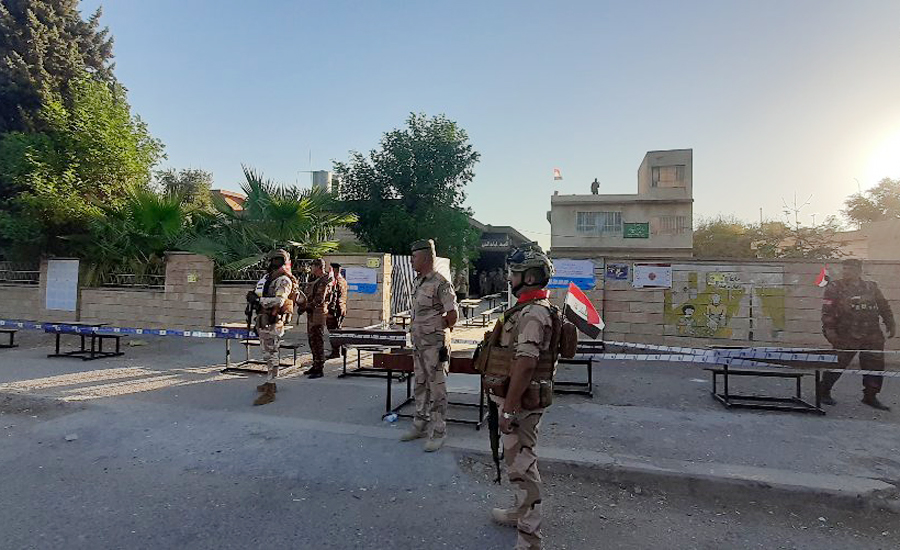The Independent High Electoral Commission IHEC has opened the doors of 595 ballot stations for almost 1.2 million voters ahead of the general parliamentary elections on October 10th.
About 1.075 million personnel of Iraqi security and military forces, 120,000 internally displaced people IDPs, mainly in Duhok and Erbil northern provinces, and 670 prisoners are allowed per their biometric voting cards to ballot from 7 am on Friday October 8th up to six pm.
No single bloc is expected to win a majority of the 328 seats in the Council of Representatives as in 2018 where Shiite factions allied with the Kurdish and the Sunni Arab political parties to establish a cabinet.
KirkukNow reporters said the stations were empty in the first hours yet the numbers are increasing gradually. Security forces are seen around special ballot stations, only one in each of Iraq's 18 provinces.
On October 10th, about 25 Iraqis will cast their votes to choose between 3,249 candidates for 328 parliamentary seats.
There are about 24 million registered voters eligible to take part in the upcoming ballot. Of these, 2.6 million are young voters between 18 and 20 years old, according to the IHEC, the official body that oversees polls.
The IHEC has decided for voters in special voting to submit their voting IDs back to the IHEC in order to avoid double voting in the general elections. It has also banned taking smart phones into stations. It has also eased access of media coverage in one station in each province.
Footage of special voting in one of Kirkuk's special voting stations. KirkukNow
The spokesperson of IHEC Jumana Ghalai told KirkukNow IDPs can vote only by showing the new biometric cards as old ones were cancelled.
Ghalali added that efforts were mounted to guarantee transparent elections as there are 250 international observers, 500 local and 133 international journalists and hundreds of locals.
Besides, the political parties have registered over 42,000 monitors, she added.
Majority of IDPs in Iraq are based in Duhok Northern province. Over 69,000 IDPs, mainly Ezidis, will vote in 31 ballot stations, 22 of it are located inside the camps, per the official records of the IHEC.
Following Duhok, there are 25,000 IDPs in Erbil, capital of Iraqi Kurdistan Region IKR, 11,000 in Sulaymaniyah, about 4,000 in Anbar, 1,500 in Najaf, and 714 in Ninewa province, IHEC figures show.





